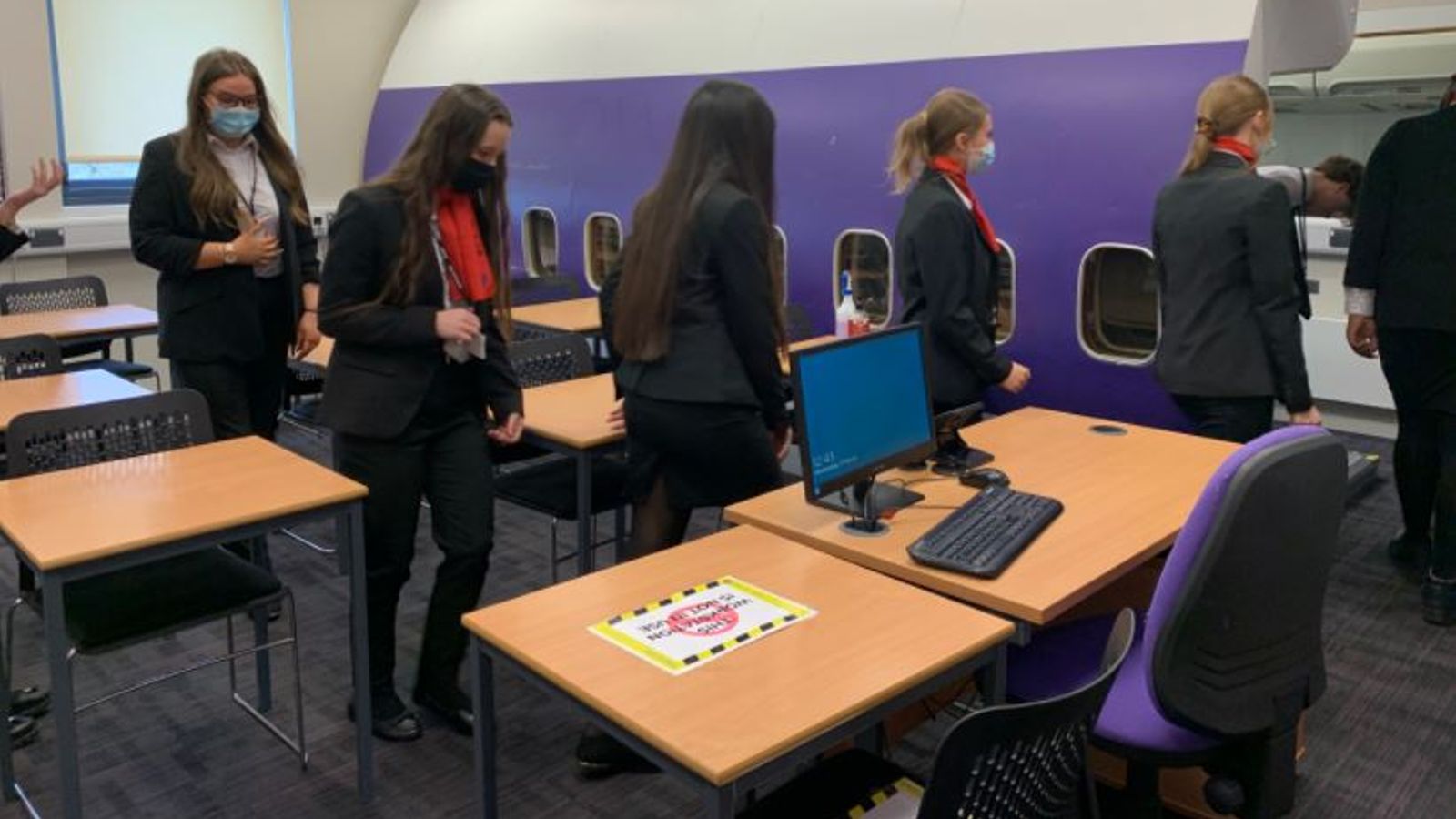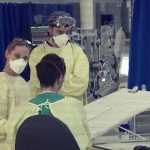Teenagers studying vocational subjects need more support to help them face the “incredibly tough” jobs market.
GCSEs and A-levels have been cancelled – but most technical and vocational qualifications are still going ahead.
The COVID-19 pandemic has left many students taking courses for jobs that do not currently exist, such as work in travel and tourism.
But many of them have seen their education suffer while classrooms were closed and work placements were disrupted due to government restrictions.
The situation recently prompted a warning from the government’s education recovery commissioner, Sir Kevan Collins, who told MPs: “We need to do something urgently to support those young people.”
Students at Halesowen College near Birmingham are back on campus.
The travel and tourism course features a classroom fitted with a plane cabin – the closest any of these students will get to flying at the moment.
Student Ella Thompson, 19, dreams of a career on cruise ships but accepted that the pandemic had pushed back her plans.
“I might have to be side-tracked after I leave college next year but the path is still there,” she said, adding that she had not been able to take a placement with a local travel business yet but was “optimistic” things would pick up later this year.
It is a similar story in the college’s training kitchens, with students learning a trade for an industry hard-hit by the pandemic.
That is not deterring Alice Horgan, 17, who is studying professional cookery.
“Everyone’s going to want to go back to eating out,” she said.
“It’s quite weird now, but I’m just hopeful things will come back to normal soon.”
It is a very different story for students on a health and social care course.
Aisha Shafiq, 18, wants to be a mental health nurse, saying: “It feels rewarding being able to do a qualification that helps people, especially those in need and especially in a sector where people are needed.”
More than 40% of 16 to 18-year-olds take a vocational qualification but David Gallagher, chief executive at qualification group NCFE, is worried about their prospects.
He said: “The labour market is going to be incredibly tough generally, but then very specifically in some industries that may take a while to come back.”
He said young people should prepare by having “maximum flexibility” when looking for work.
But he was also optimistic that, with help from industry and businesses, students would pull through.
“We’ve got to continue to invest in our future talent,” he said.
“So as the economy recovers, as the labour market recovers, we’ve work-ready, job-ready people ready to come through.”






















